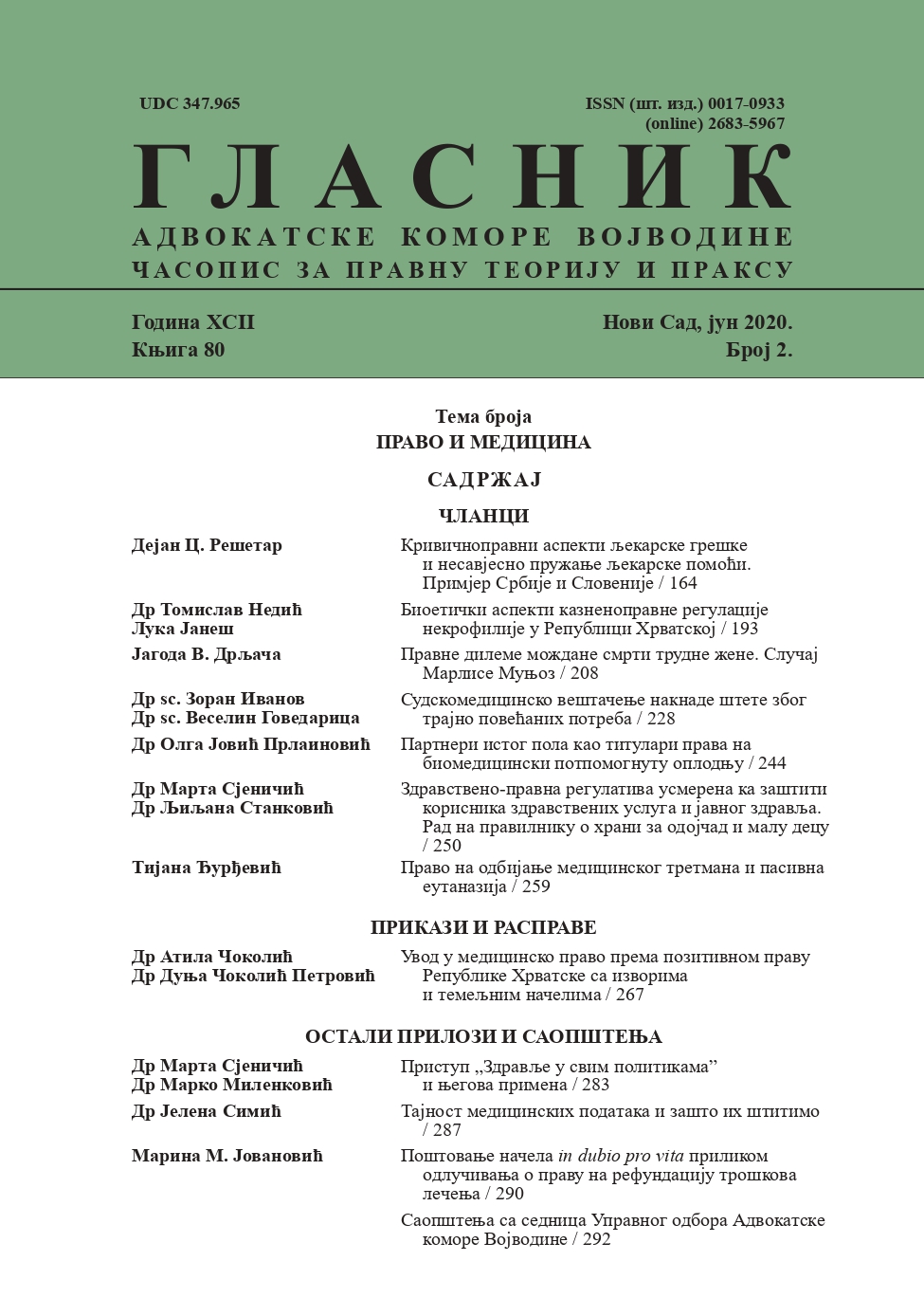SUDSKOMEDICINSKO VEŠTAČENJE NAKNADE ŠTETE ZBOG TRAJNO POVEĆANIH POTREBA
EXPERT MEDICAL ASSESSMENT OF COMPENSATION ALLOTTED FOR PERMANENTLY INCREASED NEEDS
Author(s): Zoran Ivanov, Veselin GovedaricaSubject(s): Law, Constitution, Jurisprudence
Published by: Advokatska komora Vojvodine
Keywords: custodial care; expert medical assessment; listed functional deficit; optimal time
Summary/Abstract: Article 195 of the Law on Contracts and Torts regulates the redressing of damages in case of bodily injury or damage to health. One of the types of damage compensation is the annuities which can be awarded to the injured party, if their needs are permanently increased (as stated in (2) of the Article). A person is defined as having permanently increased needs if their health is damaged, or their activities of daily living are lessened, in such a way that they are no longer able to independently perform these activities, or can only perform them with increased labour. As a rule, such a person relies on another person in performing the activities of daily living. In the court process, when the injured party is seeking annuities in the name of custodial care due to permanently increased needs, alongside medical documentation, bills for services, transport and similar, are presented as evidence; while the time allotted for custodial care is determined according to the assessment of the medical expert. Without clear guidelines on how the assessment is done and the factors involved, the assessment of the expert instils distrust in the subjects of the proceedings. The aim of the paper is to provide a new, more reliable and more precise approach to the assessment of the time allotted for custodial care. The paper lists the reduced values of the effects of the injuries from highest to lowest, in order to determine the optimal time for custodial care. The basic activities which do not require assistance – the passive component, such as sleeping, resting in bed, sitting on sofa or lounge chair, are differentiated from activities where custodial care is necessary – the active component, such as performing physiological needs, bathing, cutting the hair and nails, dressing and undressing, and putting on footwear. Observing the active part of the activities of daily living in relation to the reduced values of the effects listed ascertains the optimal time required for custodial care.
Journal: ГЛАСНИК АДВОКAТСКЕ КОМОРЕ ВОЈВОДИНЕ - часопис за правну теорију и праксу
- Issue Year: 80/2020
- Issue No: 2
- Page Range: 228-243
- Page Count: 16
- Language: Serbian

